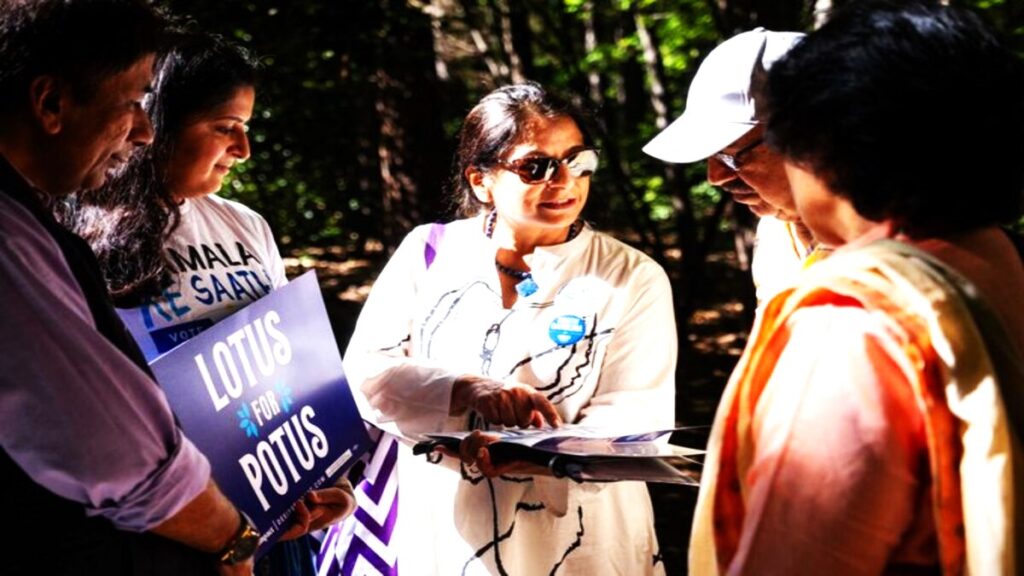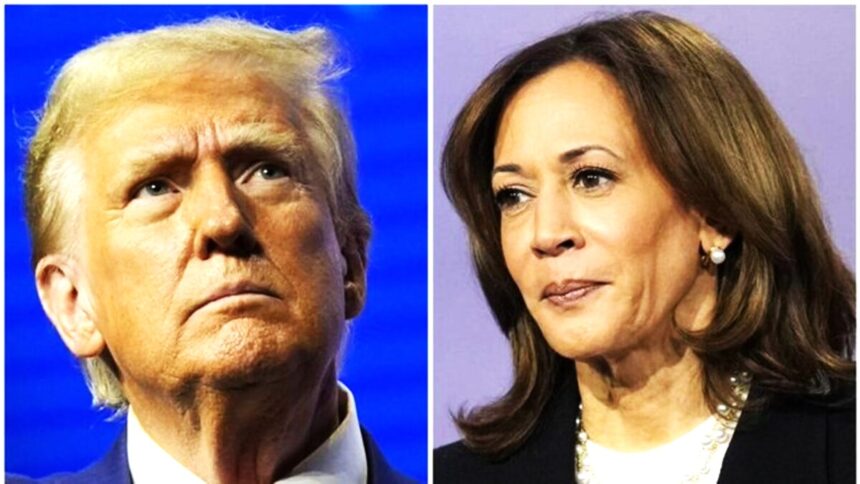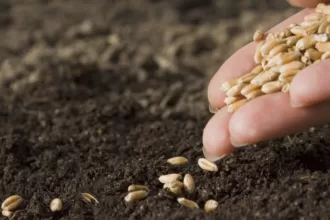As the U.S. presidential election rapidly approaches, political dynamics are evolving, particularly within the Indian-American community. A recent survey conducted by the Carnegie Endowment for International Peace in collaboration with YouGov reveals intriguing trends regarding the voting preferences of this influential demographic. While Indian-Americans have historically leaned toward the Democratic Party, the survey indicates a notable shift in favor of Republican candidate Donald Trump.
Gender polarization is indeed also in the Indian-American community.
But more interesting is a specific subgroup: Indian-American men under 40 favor Trump 48% to 44% for Harris. pic.twitter.com/pO2mO5AUHi
— The Emissary (@TheEmissaryCo) October 28, 2024The Survey Insights
The survey, conducted between September 18 and October 15, 2024, sheds light on the electoral preferences of Indian-Americans, a group that comprises over 5.2 million individuals in the United States. According to the findings, 61% of Indian-Americans indicated their intention to vote for Kamala Harris, the current Vice President and Democratic candidate. However, there is an upward trend in support for Trump, with 32% of respondents expressing their preference for the former president.
These numbers highlight a potential warning sign for the Democrats. The increasing inclination of Indian-Americans towards Trump suggests that their traditional loyalty to the Democratic Party may be wavering.
Gender Dynamics in Voting Preferences
The survey also reveals intriguing insights when examining voting preferences by gender. Among Indian-American women, a significant 67% plan to vote for Kamala Harris, while only 22% express support for Trump. In contrast, the male demographic shows a more balanced division: 53% favor Harris, while 39% lean towards Trump. This disparity indicates that while Harris retains a strong foothold among women, male voters are showing a greater willingness to consider the Republican candidate.
Concerns About Political Violence
As the election draws near, there is a palpable sense of concern among American voters regarding the potential for political violence. Many citizens are apprehensive about the implications of a contentious election, fearing attempts to overturn results and the broader impact on democracy. This climate of uncertainty may be influencing voter sentiment and behaviors across various communities, including Indian-Americans.

Trump’s Campaign Strategy
In recent campaign appearances, Donald Trump has ramped up his rhetoric against Kamala Harris, particularly in swing states like Pennsylvania. During a rally, he claimed that her presidency would escalate tensions globally, even suggesting that it could lead to World War III. Trump argued that Harris would be ineffective in negotiations with world leaders such as Russian President Vladimir Putin and Chinese President Xi Jinping, framing her election as a gamble with the lives of millions.
Moreover, Trump has made a concerted effort to appeal to Muslim voters, asserting that he could bring peace to the Middle East. His outreach to diverse communities reflects a strategic pivot aimed at broadening his electoral base, which may resonate with some Indian-American voters who are seeking stability and peace in international relations.
The Indian-American Perspective
Historically, Indian-Americans have played a crucial role in U.S. elections, often voting in alignment with their values and priorities. Issues such as immigration, education, and healthcare resonate strongly within this community. While Harris has been a symbol of representation and progress for many Indian-Americans, the increasing appeal of Trump suggests that some voters may be reassessing their priorities as the election approaches.
Key Issues Driving the Shift
Several factors may be contributing to the shift in Indian-American support. Economic concerns, particularly in the wake of the pandemic, are at the forefront of many voters’ minds. Trump’s messaging around economic growth and job creation may be attracting those who feel that the current administration has fallen short in these areas.
Additionally, the desire for a strong international presence could be influencing perceptions of Harris versus Trump. Voters who prioritize national security may find Trump’s aggressive foreign policy stance more appealing, especially in light of his claims about global threats.
What Lies Ahead?
As the U.S. presidential election draws near, the evolving dynamics within the Indian-American community underscore the complexity of voter behavior. While Kamala Harris retains significant support, the increasing inclination toward Donald Trump signals a potential shift that could have implications for the Democratic Party.
With less than a week to go before voting begins, both candidates are intensifying their outreach to various communities, recognizing the importance of every vote. As Indian-Americans weigh their options, the final decision will reflect not only their individual beliefs but also the broader context of the issues at stake in this pivotal election. The outcome will undoubtedly shape the future of American politics and the direction of the nation.
Read More : Tech Giants Support Trump: A Strategic Realignment Ahead of 2024






